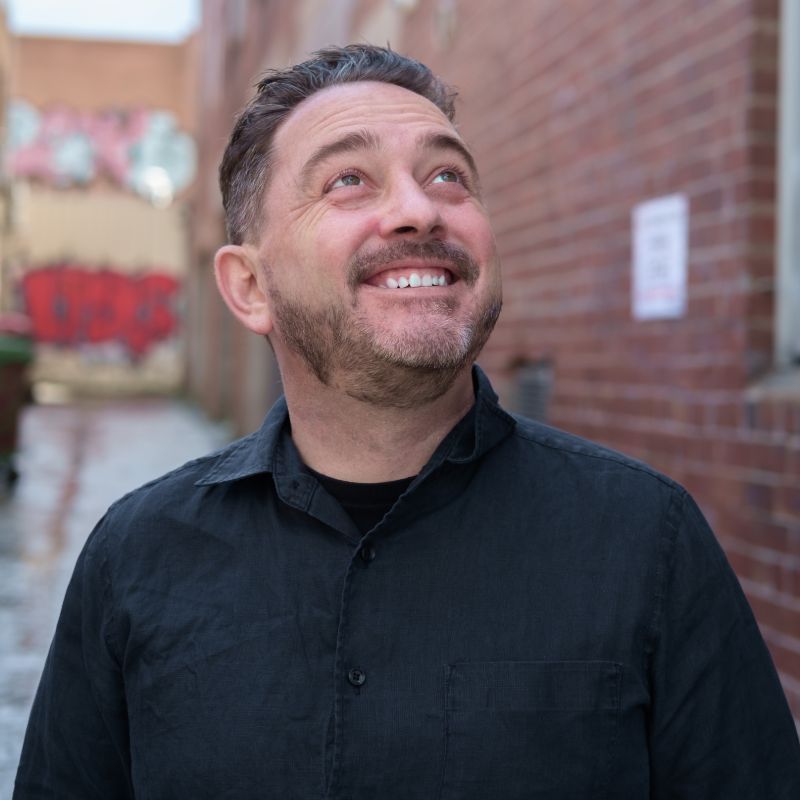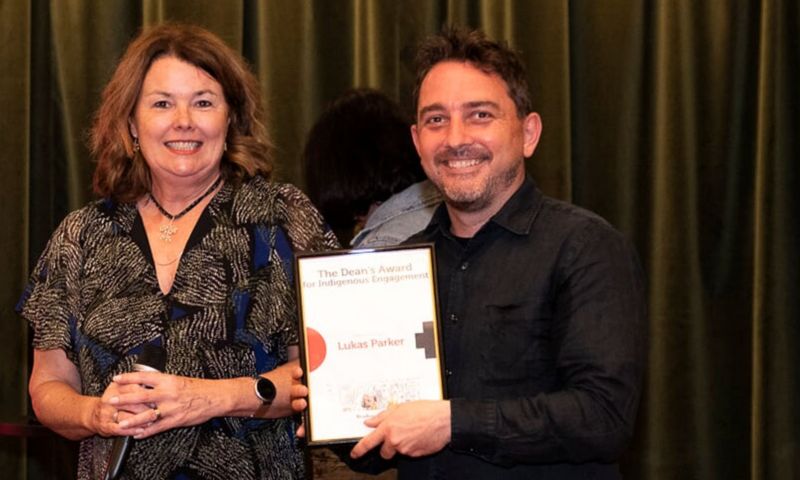Associate Professor Lukas Parker
Associate Professor


DSC | School of Media and Communication
Communication Collaboratory (Co-Lab)
Fight Food Waste Cooperative Research Centre
Social Change Enabling Capability Platform
Consumer Wellbeing Research Group
Email: lukas.parker@rmit.edu.au
Phone: +61 3 9925 5007
Campus: Melbourne City

DSC | School of Media and Communication
Health Communication Research and Advisory
Fight Food Waste Cooperative Research Centre
Social Change Enabling Impact Platform
Consumer Wellbeing Research Group
3C – Communication and Change Co-Lab
Australian Association of Social Marketing
Email: lukas.parker@rmit.edu.au
Phone: +61 3 9925 5007
Campus: Melbourne City
Associate Professor Lukas Parker is a leading social marketing and advertising scholar whose research sits at the nexus of behaviour change, communicating health and digital advertising. Leading teams of researchers, his research addresses pressing social problems related to health and sustainability. He has over fifty peer-reviewed publications including influential co-authored books Social Marketing and Advertising in the Age of Social Media (2020) and Social Marketing and Behaviour Change: Models, theory and applications (2014) which guide social marketing practitioners and scholars.
Associate Professor Parker’s highly applied research has informed and assessed social and behaviour change communication campaigns and government policy. His recent government and industry partners include VicHealth, Football Victoria, Sustainability Victoria, Woolworths and the Australian Securities and Investments Commission (ASIC).
Associate Professor Parker is a highly accomplished educator with extensive international experience over two decades, in Australia, South Korea and Vietnam. He currently teaches into the Master of Advertising and Bachelor of Communication (Advertising) degree programs. His teaching intersects with his research and is focused on social change and engaging with industry, government and community. An example of this is his popular course, Wicked Problems: Innovative Solutions challenges multidisciplinary teams of undergraduate and masters students in an intensive series of workshops tackling complex wicked problems that do not have clearly identifiable solutions. It employs a design thinking process where students consider problems through engaging in co-creation with those most connected to the problem (target audience, experts in the field, stakeholders, organisations) to challenge assumptions and to create positive, participant focused solutions.

Associate Professor Parker is on the management committee of the Australian Association of Social Marketing (AASM) and a member of the Australia-New Zealand Marketing Academy (ANZMAC) and the International Social Marketing Association (ISMA).

Associate Professor Lukas Parker’s research interests are social and government marketing and especially the influence of marketing communication and advertising on behaviour. His research is published extensively in peer reviewed journals and books in the fields of advertising, social marketing and behaviour change. His current research is focused on communicating health and pro-environmental behaviours. His communication research addresses pressing social problems including promoting healthy masculinities, healthy eating, road safety and waste reduction. He has collaborated with AIP Foundation (Vietnam), Institute of Public Health (Vietnam) and the Centers of Disease Control and Prevention (USA). His research teams undertake research for Department of Families, Fairness and Housing, VicHealth, Pacific Environments, Australian Conservation Foundation, Australian Securities and Investments Commission, the Victorian Independent Broad-based Anticorruption Commission and the University of the Third Age (U3A).
Digital, Digital Advertising, Social Marketing, Health Communication, Behaviour Change, Social Media, Social Advertising, Sustainability, Sustainable Behaviour, Consumer Behaviour, Gamification
Publications
Projects
Awards

Associate Professor Parker co-leads the Communication Collaboratory. He supervises PhD projects focused on:
He supervises PhD projects involving qualitative and quantitative techniques, in Traditional Thesis, PhD with publication and PhD by Project modes.
Current
Recent
Nutrients, 14, 2226
Micallef, D., Parker, L., Brennan, L., Schivinski, B., & Jackson, M. (2022).
PLoS ONE, 17(5), e0264924
Phan-Le, N. T., Brennan, L. & Parker, L. (2022).
Abingdon, UK: Routledge
Kubacki, K., Parker, L., Domegan, C., & Brennan, L. (2022).

Fight Food Waste Cooperative Research Centre
Parker, L., Schivinski, B., Brennan, L., & Lockrey, S.
2023-2024
VicHealth
Westberg, K., Stavros, C., Parker, L. Druce, A., Martin, D., Reid, M., & Fouvy, D.
2019 - 2023
Department of Families, Fairness and Housing, Victoria
Cover, R. & Parker, L.
2021


In recognition of an individual who supports Indigenous Engagement, promoting Indigenous knowledge, supporting the Reconciliation Action Plan and ethical Aboriginal and Torres Strait Islander Engagement.
Award date: 2019 and 2020
Recipients: Lukas Parker
In recognition of Fighting Food Waste in Retail Settings project in the Wicked Problems course, which linked scholarship with teaching.
Award date: 2022
Recipients: Lukas Parker
In recognition of an individual or team who has developed deep and rich industry engagements/partnerships with community, the arts, business, industry, cultural organisations or government.
Award date: 2018
Recipients: Lukas Parker
Award date: 2016
Recipients: Lukas Parker


Acknowledgement of Country
RMIT University acknowledges the people of the Woi wurrung and Boon wurrung language groups of the eastern Kulin Nation on whose unceded lands we conduct the business of the University. RMIT University respectfully acknowledges their Ancestors and Elders, past and present. RMIT also acknowledges the Traditional Custodians and their Ancestors of the lands and waters across Australia where we conduct our business - Artwork 'Sentient' by Hollie Johnson, Gunaikurnai and Monero Ngarigo.
Acknowledgement of Country
RMIT University acknowledges the people of the Woi wurrung and Boon wurrung language groups of the eastern Kulin Nation on whose unceded lands we conduct the business of the University. RMIT University respectfully acknowledges their Ancestors and Elders, past and present. RMIT also acknowledges the Traditional Custodians and their Ancestors of the lands and waters across Australia where we conduct our business.